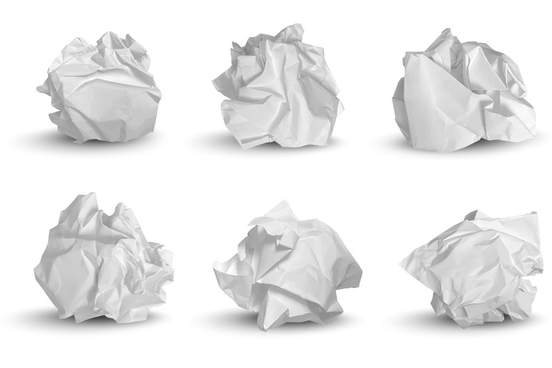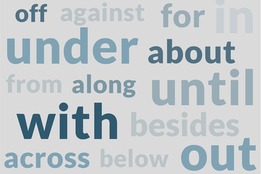Catch up on this compendium of silly, lovely, and sometimes altogether pointless vocabulary:
Merriam-Webster's Great Big List of Beautiful and Useless Words, Vol. 1
Merriam-Webster's Great Big List of Beautiful and Useless Words, Vol. 2
Merriam-Webster's Great Big List of Beautiful and Useless Words, Vol. 3
Welcome to Part Four!


Definition:
Sickness occasioned by intemperance (as in food or drink)
Degree of Usefulness:
Moderate, depending on your own levels of moderation.
What to know:
Crapulence may also be defined as “great intemperance especially in drinking.” Should you need an adjective meaning “suffering from excessive eating or drinking,” use crapulent.
Avidulous

Definition:
“Somewhat greedy.”
(Encyclopædia perthensis, 1796-1806)
Degree of Usefulness:
Usefulness depends on how greedy you are.

Definition:
Voluble nonsensical or inconsequential talk or writing
Degree of Usefulness:
Not very high, we hope.
What to know:
This lovely word is an alteration of the Scots blather skate, which comes from combining blather and skate (“a contemptible person”).

Definition:
a backward movement
Degree of Usefulness:
Useful about half the time in life.

Definition:
a political patronage or spoils especially when regarded as venal or corrupt
Degree of Usefulness:
This word, regrettably, tends to often be useful.
What to know:
Be careful to distinguish the pie-counter from the bean-counter, which is defined as “a person involved in corporate or government financial decisions and especially one reluctant to spend money.”

Definition:
difficult or unpleasant to handle or meet
Degree of Usefulness:
Useful for anyone who has to interact with the public in any meaningful way.

Definition:
Thriving at a relatively low temperature
Degree of Usefulness:
Potentially very useful, depending on how much you and your family fight over the thermostat.
What to know:
This word is most commonly applied to bacteria, but there is no law stating that you cannot apply it to the person in your house who insists on turning down the heat and opening all the windows.

Definition:
induced unintentionally by a physician or surgeon or by medical treatment or diagnostic procedures
Degree of Usefulness:
We hope it is not useful at all.

Definition:
Deserving no praise
Degree of Usefulness:
High. When you consider just how many things (and people!) there are in this world that deserve no praise you quickly begin to wonder how you ever got along without this word.
An Example:
Their flesh is not unsweet; but it yeeldeth impure and illaudable aliment, and often hurtful; also Physitians count it feaverish, feeding on, and living in dirty places: and they are hardly concocted and of bad juyce.
— Robert Lovell, Panzooryktologia, 1661
Graumangere

Definition:
“A great meal.”
(Oxford English Dictionary, 2nd Ed., 1989)
Degree of Usefulness:
High, especially at mealtimes.

Definition:
marked by an ignorance of mathematics and the scientific approach
Degree of Usefulness:
Sigh.
What to know:
This word is the mathematical cousin of illiterate.

Definition:
a magician's manual for invoking demons and the spirits of the dead
Degree of Usefulness:
Useful whenever Cthulhu shows up.

Definition:
A state of irritability and tension
Degree of Usefulness:
These days this word is very useful. People may always say that, but that makes it no less true.
An Example:
There is an indescribable complaint, which will never allow a moment’s repose to mind or body; which nothing will satisfy—which allows of no beginning, and no ending—which wheels round the mind like a squirrel in its cage, ever moving, but still making no progress. It is called the Fantods.
— Metropolitan Magazine (New Haven, CT), 1 Oct. 1835

Definition:
a form of visual agnosia characterized by an inability to recognize faces
Degree of Usefulness:
Highly useful whenever you fail to recognize someone you should have recognized.

Definition:
an attitude toward life marked by complacency and a refusal to recognize unpleasant facts
Degree of Usefulness:
High, especially when talking to fans of Charles Dickens, from whose work the word was taken.
What to know:
Podsnappery came from the name of Mr. Podsnap, a character in Our Mutual Friend, by Charles Dickens.

Definition:
Lack of sympathy
Degree of Usefulness:
About the same degree of usefulness as sympathy.
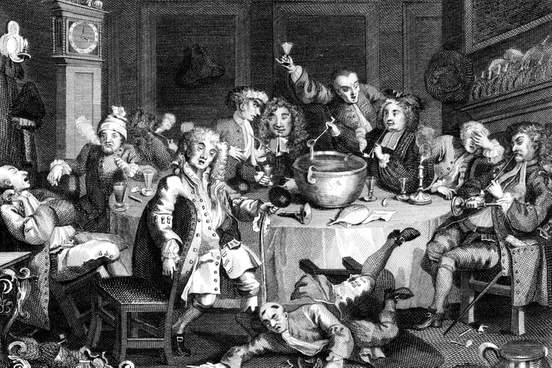
Definition:
Habitual intoxication
Degree of Usefulness:
Depends on one’s age.
What to know:
Ebriosity comes to us from the Latin ebriosus” (“addicted to drink”), which itself is from _ebrius (“drunk”). This word is also the root of inebriate (“to make drunk”).

Definition:
rule by the mediocre
Degree of Usefulness:
Very useful, when going to visit one’s family for holiday gatherings, as an ice-breaker for friendly conversation.
Cellarhood

Definition:
The condition of being a cellar
(Oxford English Dictionary, 3rd Edition)
Degree of Usefulness:
Extremely low.
What to know:
Who knows when one might be presented with the need to describe something as having the condition of having a cellar? Actually, we do know: you will never need to describe something thusly. But think of how exciting it would be if the situation arose, and you happened to know this word.

Definition:
proud, haughty
Degree of Usefulness:
Mixed: it’s not going to move the conversation along when you use it, but it is a fun word to say.

Definition:
One that takes bribes from both sides
Degree of Usefulness:
Not very high, since more bribe-takers restrict themselves to a single side.
What to know:
Ambidexter has other, non-bribery-related, meanings, including “one that practices duplicity” and “one that uses both hands with equal facility.”

Definition:
an incident that arouses unpleasant talk or gives rise to scandal : a public unpleasant altercation
Degree of Usefulness:
Let’s be honest … given how much most of us love gossip, we all hope this word will end up being useful; we just want it used in reference to someone else.
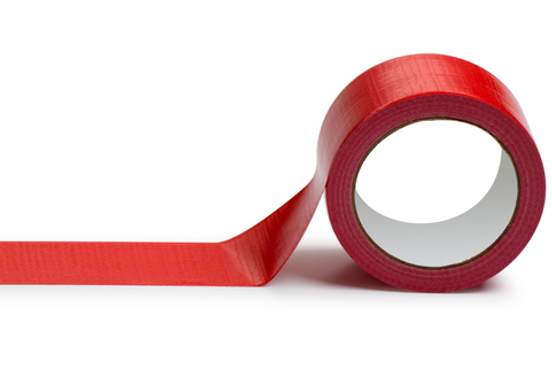
Definition:
Stupid officialism
Degree of Usefulness:
Mixed. On the one hand, it is a very obscure word; on the other hand, it is a very nice word.
What to know:
Officialism is “lack of flexibility and initiative combined with excessive adherence to regulations in the behavior of usually government officials."

Definition:
One that causes or permits dilapidation
Degree of Usefulness:
Medium: buildings are always falling down somewhere, and it’s nice to have a word for the person we’d like to blame for this.
What to know:
Dilapidator is similar to antivitruvian, another exceedingly rare word, which was defined in Samuel Fallows’ 1891 New Supplemental Dictionary as “contrary to Vitruvius, the well-known Roman architect; used an an epithet for those who undid or destroyed architectural monuments.”

Definition:
a person seeking to avoid military service (as by working in a government office)
Degree of Usefulness:
Perennial.

Definition:
of weather : unpleasant : raw and cold
Degree of Usefulness:
Depends on where you live, and how much you like to complain about the weather.
What to know:
Crimpy should not be confused with words such as east-windy, which simply means “bleak, unpleasant.”
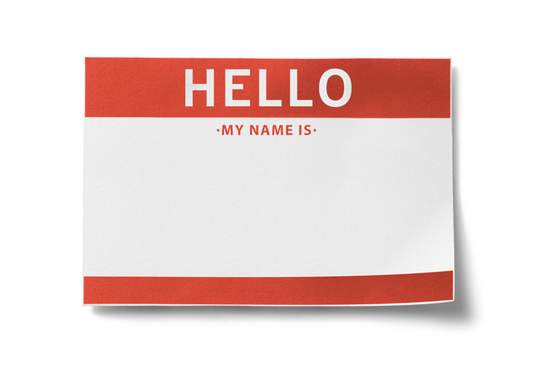
Definition:
“having no name; unnamed,” also “anonymous”
Degree of Usefulness:
Very useful for ghost writers and Internet trolls alike.

Definition:
full of ruth; full of sorrow
Degree of Usefulness:
That depends on how many people named Ruth you know.
What to know:
Ruth, in addition to being a lovely name, has a number of meanings in English, “sorrow for the misery of another,” “ sorrow for one's own faults,” and “a sad thing.”

Definition:
One celebrating a jubilee
Degree of Usefulness:
Limited usefulness, since a jubilee typically only occurs every 50 years.

Definition:
Of or relating to winter
Degree of Usefulness:
Seasonal usefulness.
What to know:
The relevant words for the other seasons are autumnal, summery, and vernal. We even have words for “of or relating to the latter and usually drier part of summer” (serotinal) and “of or relating to early spring” (primaveral).
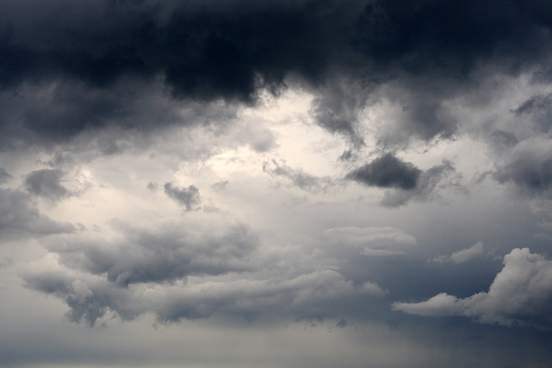
Definition:
causing gloom or darkness
Degree of Usefulness:
Highly useful for winter months.
Epicharikaky

Definition:
A joy for the misfortune of others
(Joseph Nicol Scott, A New Universal Etymological English Dictionary, 1755)
Degree of Usefulness:
This word is eternally useful.
What to know:
This synonym of schadenfreude never really took off, found almost entirely in 18th century dictionaries, and in people writing about words.
Unparadiz’d

Definition:
Brought from joy to miserie
(Henry Cockeram, The English Dictionarie, 1623)
Degree of Usefulness:
If you are an aficionado of any professional sports team this word is probably very useful.

Definition:
To rejoice
Degree of Usefulness:
We hope this word is always useful to know.
What to know:
Our language has a number of happy words beginning with jub-: “an act of rejoicing” may be either jubilation or jubilance.

Definition:
to bud or sprout again
Degree of Usefulness:
Very useful for gardeners
What to know:
Pullulate means “to breed or produce freely” or “to germinate, sprout.”

Definition:
One having a jovial disposition
Degree of Usefulness:
We have no idea, but hope you have enough jovial people around you that this word is useful.
What to know:
In addition to the above definition, Jovialist may mean “one born under the planet Jupiter.” The Romans at one point referred to Jupiter, their god of the heavens, as Jove; this shorter name serves as the foundation of a number of words in English, including jovial (“characterized by good-humored cheerfulness and conviviality”), jovialize (“to make jovial”), and Jovicentric (“appearing as viewed from the center of Jupiter”).
Tridacuan

Definition:
“any thing that is so big that must be cut in three pieces, or morsels, ere it can be eat.”
(Henry Cockeram, English Dictionarie, 1623)
Degree of Usefulness:
Useful at most meals.
Semiustulate
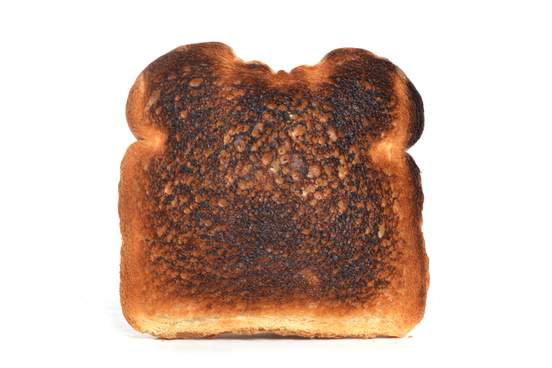
Definition:
“half burnt or consumed by fire”
(Nathan Bailey, An universal etymological English dictionary, 1726)
Degree of Usefulness:
Useful every time one makes toast.
What to know:
Ustulation, for those who are very bad at making toast, is a word that means “the action of burning or searing.”

Definition:
shining at night
Degree of Usefulness:
Mainly useful for naturalists. Also for people who like to talk about being night owls.
What to know:
Noctilucous is also synonymous with phosphorescent_.

Definition:
The essential nature or ultimate form of something: what makes something to be the type of thing that it is
Degree of Usefulness:
Probably not so useful, unless you are a philosopher.
What to know:
Quiddity has other meanings as well, such as “a trifling point, a quibble,” and “an eccentricity.”

Definition:
Doubtful and hesitating
Degree of Usefulness:
Um … not sure.
An Example:
This just and proper and decent motion, however, to put up suitable (that was the word) curtains, aroused the parsimony of some of the old Hunkers, and with the fear of gold spoon and silver knee-buckle extravagance before their eyes, they were rather “juberous” about trusting the Clerk with so vast an outlay of the dear people’s money, without restricting him in the amount.
— The Wilmington Daily Herald (Wilmington, NC), 23 Nov. 1854

Definition:
an outburst of hasty words
Degree of Usefulness:
If you are fond of yelling, or of making gurgling noises, this word is very useful.
What to know:
Gollar functions as both a verb (“to call out in a loud voice,” “to make a gurgling sound”), in which case it is usually found in dialectal British use, or as a noun (meaning “yell, roar,” as well as the outburst sense listed above), in which case it is chiefly found in Scottish use.

Definition:
A petty or contemptible politician
Degree of Usefulness:
Probably useful, since one of the only things more reliable than petty politicians is that people will want to complain about petty politicians.
What to know:
The noun suffix -aster carries the meaning of “one that is inferior or not genuine,” and is found attached to numerous words in English. Among these are contemptuous terms for poets (poetaster), theologians (theologaster), critics (criticaster), philosophers (philosophaster), and philologists.

Definition:
an ardent desire or longing; especially, a feeling of loss or grief for something lost
Degree of Usefulness:
Increasing usefulness as one ages.

Definition:
the part of a play developing the main action and leading to the catastrophe
Degree of Usefulness:
Useful before every catastrophe. Also useful after the catastrophe, as a way of describing what came before.
What to know:
The catastrophe referenced here is a theatrical sense, meaning “the final action that completes the unraveling of the plot in a play, especially a tragedy.”
Gound

Definition:
“The yellow secretion in the corners of the eyes.”
(Joseph Wright, English Dialect Dictionary, 1900)
Degree of Usefulness:
High. Useful every morning.
What to know:
If you have a very bad case of this, the Oxford English Dictionary has a definition that should fit your condition:
“Foul matter, esp. that secreted in the eye.”
Impluvious

Definition:
“Wet with rain.”
(Elisha Coles, An English Dictionary, 1677)
Degree of Usefulness:
Useful for those without umbrellas.
What to know:
We have a number of similar rainy words in English, including pluvious (“of or relating to rain”) and pluviose (“marked by or regularly receiving heavy rainfall”).


